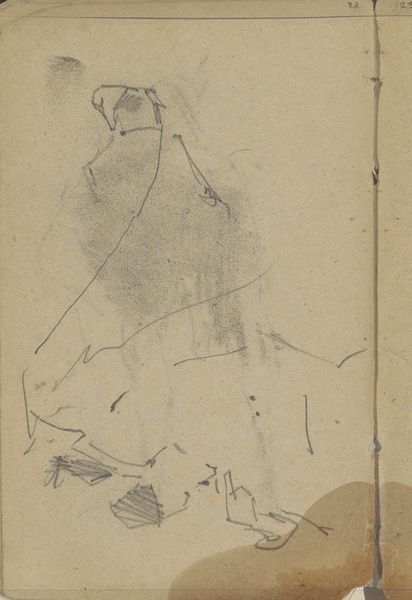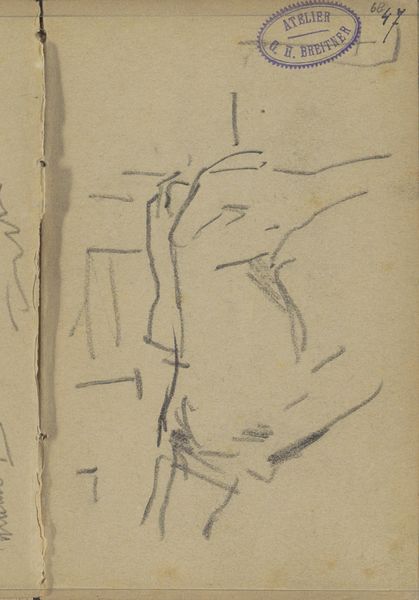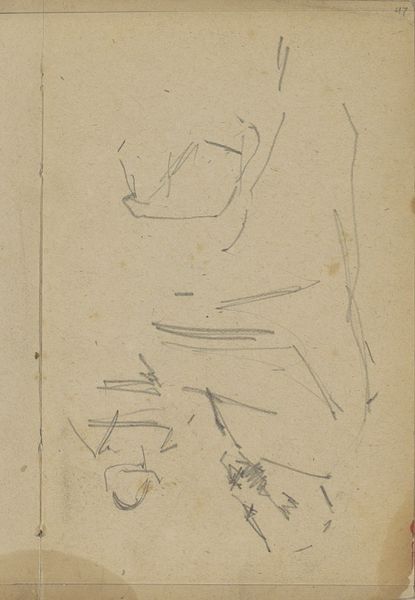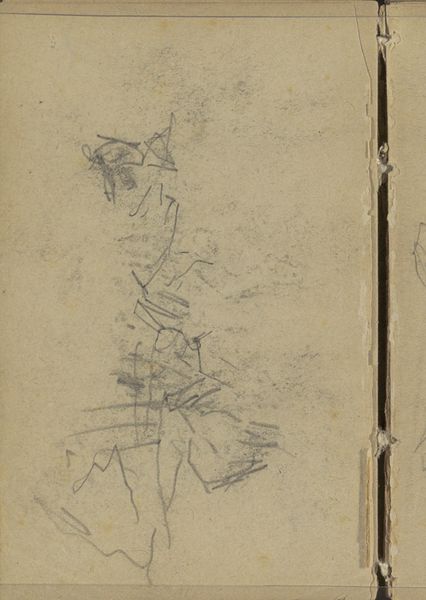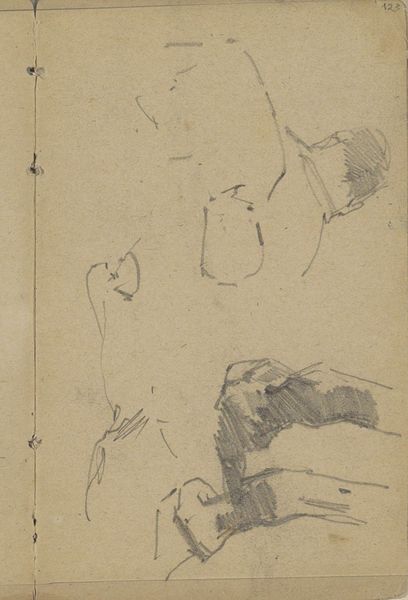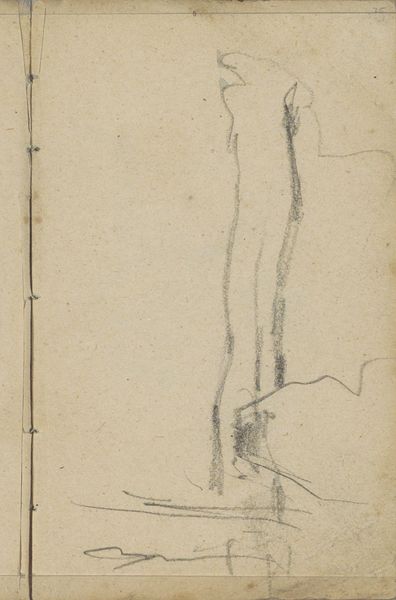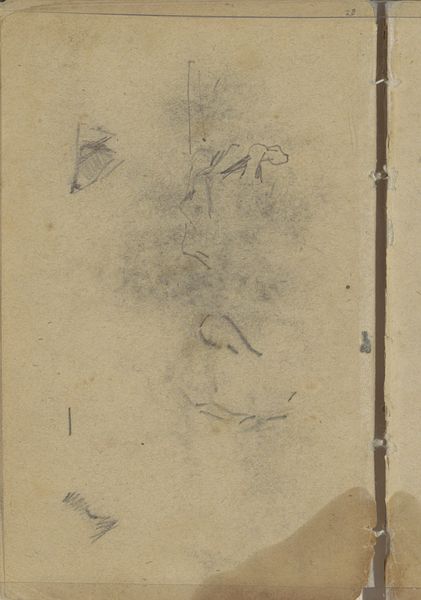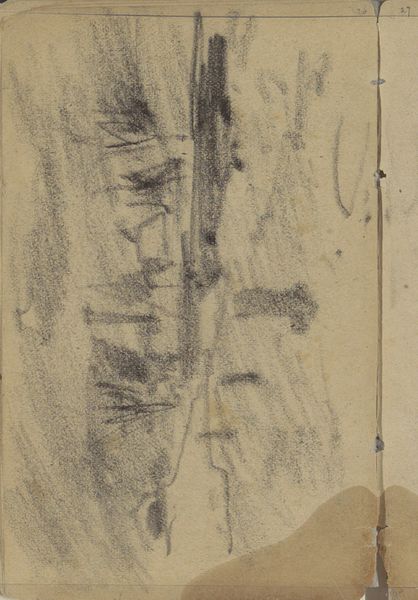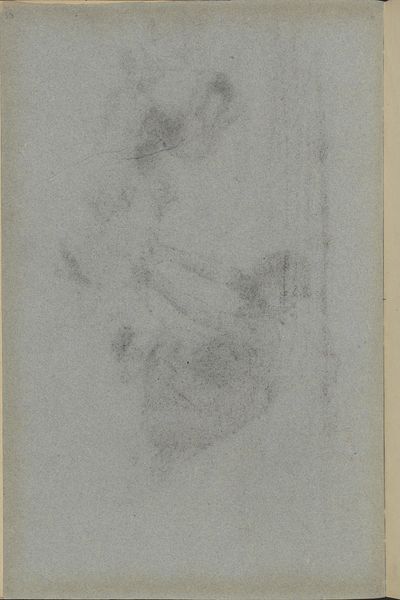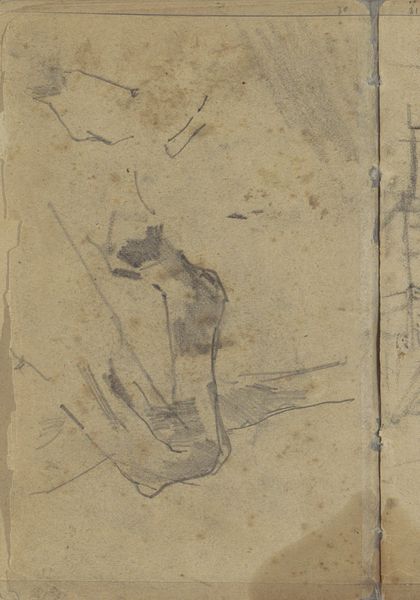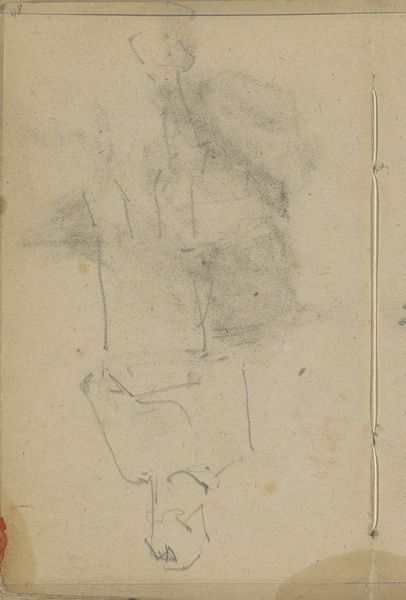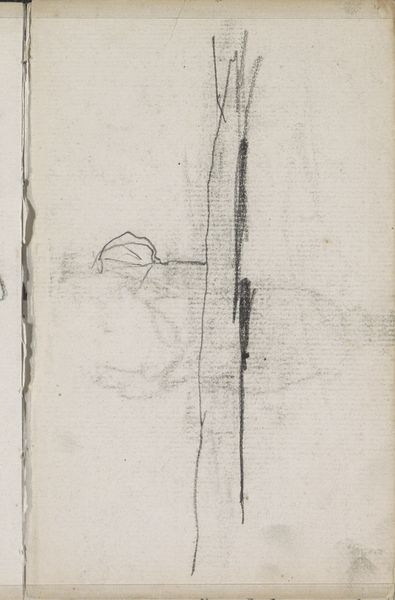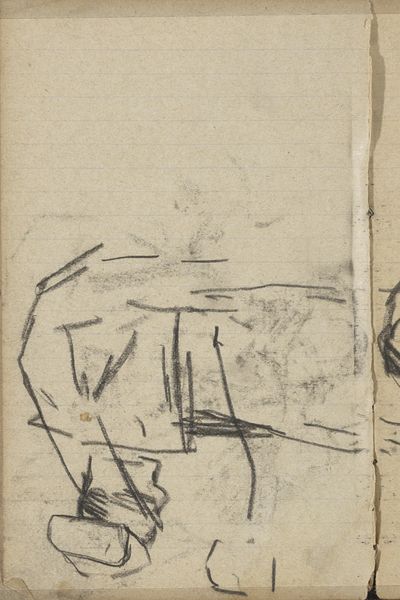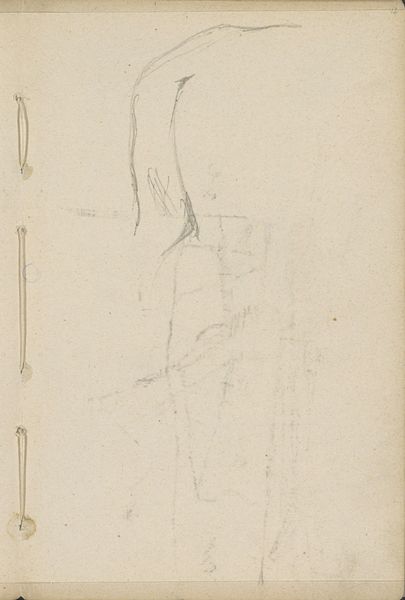
drawing, paper, pencil
#
drawing
#
amateur sketch
#
toned paper
#
quirky sketch
#
impressionism
#
sketch book
#
incomplete sketchy
#
landscape
#
paper
#
personal sketchbook
#
sketchwork
#
detailed observational sketch
#
sketch
#
pencil
#
horse
#
sketchbook drawing
#
sketchbook art
Copyright: Rijks Museum: Open Domain
Curator: Here we have "Paardenstudies" or "Studies of Horses," a sketchbook page by George Hendrik Breitner, dating from about 1881 to 1883. It's a pencil drawing on paper. What are your initial thoughts? Editor: Energetic. And a little frantic, perhaps? The composition feels very immediate, all these quick, jagged lines converging... It lacks the polish of a finished piece, which is appealing. Curator: Indeed. Note how the artist uses a rather limited range of values, mostly thin, dark lines on the toned paper to suggest form. There’s a real sense of dynamism in the marks themselves. Notice also the incomplete and repetitive character of the sketched lines, denoting some visual structure-in-progress that needs careful formal structuring before completion. Editor: I see it. For centuries, the horse has been a symbol of power, freedom, even nobility. But here, Breitner seems more interested in capturing the animal’s restless energy, its constant movement. It’s less about idealizing the horse and more about portraying its vital essence. Also, you can discern horse carriages, with multiple equine members—how does that inform a possible historical connection to warfare or to royal transport? Curator: Interesting point. Consider the way Breitner crops the figures, particularly near the edges of the page. It creates a sense of implied continuation, suggesting a world extending beyond the frame, even an assembly of such animal or transport formations. It’s less a portrait and more a fleeting glimpse. Editor: So, this work seems less about immortalizing the horse as a symbol and more about capturing a realistic image. Are there historical clues in the tack or harnesses sketched here that might tell us what these horses might have represented in the late 19th century in the Netherlands? Curator: Precisely, one sees Breitner grappling with how to capture ephemeral impressions through line. It’s more a record of a perceptual event rather than a grand symbolic gesture. It shows how his artistic choices were directed towards portraying what’s seen, a conscious focus on structure through light. Editor: Yes, it’s not a triumphant steed, but raw potential, not a composed form, but something more human, where errors are embraced. These are powerful evocations. Curator: Agreed. The work gives a window into an artistic exploration. A worthwhile diversion, in the end, where structure is about life unfolding.
Comments
No comments
Be the first to comment and join the conversation on the ultimate creative platform.
